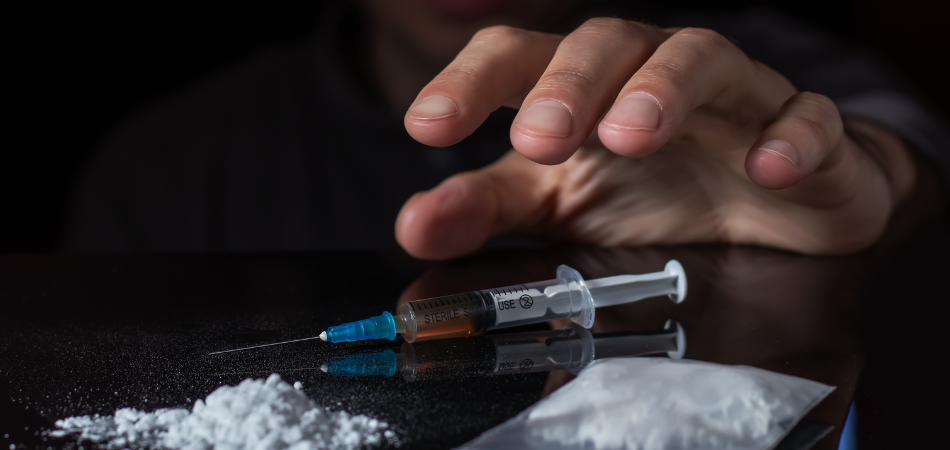When we spend time learning or developing new skills, the trajectory typically shows an overall upward motion. Take learning to play the guitar as an example. In the early days, there will be frustration, feelings of despair and even a few moments of wanting to give up. However, if you stay committed, those simple “Twinkle Twinkle Little Star” renditions could turn into playing “Stairway to Heaven”. But does this process apply to sobriety?
In this blog, we turn the spotlight on our fictional character, Dave, who is a year into sobriety. We’ll highlight the struggles he went through, is currently going through and how he can continue his positive progress.
Backstory: Dave, a 32-year-old from the UK, struggled with a destructive alcohol addiction. After a four-year battle, he decided to take action and seek help for his addiction through a rehab centre. Below, we gain insight into Dave’s initial struggles with sobriety and how he’s doing now, one year into recovery.
Challenge 1: Physical withdrawal symptoms
Before:
Within the first month, Dave felt overwhelmed by intense physical and emotional withdrawal symptoms from alcohol like nausea, headaches, tremors and mental health issues, such as depression. These symptoms made everyday activities tough and added to his discomfort.
After:
A year later, and after attending rehab, Dave’s body has adjusted to being alcohol-free. The withdrawal symptoms have long subsided, and he feels physically healthier. He now enjoys a regular sleep pattern and has more energy to engage in physical activities, which boosts his overall well-being.
Challenge 2: Cravings and urges
Before:
During the initial months, Dave faced strong cravings and urges to use alcohol. These urges often occur during stress or social situations, making it hard for him to resist the temptation.
After:
Twelve months later, the intensity and frequency of Dave’s alcohol cravings have significantly diminished. He has developed coping strategies from continued treatment, such as mindfulness and engaging in hobbies, to manage these urges. Dave feels more in control and confident in his ability to maintain sobriety.
Challenge 3: Social isolation
Before:
Initially, Dave felt socially isolated as he distanced himself from friends who still use alcohol and drugs. He finds it hard to connect with others and fears judgement from those who don’t understand his journey.
After:
After a year, Dave has built a new social network of sober friends and supportive individuals who understand his journey. He participates in sober events and community activities, feeling a sense of belonging and acceptance.
Challenge 4: Establishing routine and structure
Before:
In the first few months, Dave struggled to establish a new routine and structure without the influence of substances. He felt lost and needed help with how to fill his time productively.
After:
One year later, Dave developed a stable daily routine that included healthy habits and enjoying new and old hobbies. He has also engaged in volunteer work with his newfound access to more time. This structure provides a sense of purpose and fulfilment, making his sobriety journey more manageable and rewarding.
Challenge 5: Self-identity and self-worth
Before:
In the initial months, Dave struggled with a loss of self-identity and low self-worth. He struggled to see himself outside of his substance use and felt unworthy of a better life. He was in the early stages of coming to terms with the damage he had done to his friend and family relationships. Feeling ashamed of his actions, Dave felt worthless.
After:
After a year, Dave has rediscovered his self-identity and self-worth. Through therapy and self-reflection, he recognises his strengths and achievements in his sobriety journey. Dave now sees himself as a resilient and capable individual, proud of his progress and hopeful for the future. As for his relationships, they have improved dramatically. Some of those who have forgiven him are now able to continue their relationship together in a positive way.
Is Dave cured of his addiction?
Dave has made incredible progress in his journey to sobriety, turning his life around in many significant ways. However, it is crucial to remember that addiction is a lifelong disease that requires ongoing management. Even though Dave is doing well, it’s important for him to continue the practices and support that have helped him so far.
Unfortunately, there is always the possibility of relapsing. While we’re not trying to diminish Dave’s achievements, it’s something that he and anyone else in a similar situation need to remember, even a year into recovery.
So, what can Dave and others like him do to continue sobriety and build on the positives they have already created?
Continued therapy
Regular therapy sessions provide Dave with a safe and supportive environment to discuss his feelings and develop new coping strategies. It’s normal for a coping strategy to age with time and situational developments, meaning it’s vital to re-address and re-evaluate these methods frequently to avoid any accidents happening.
Support groups
Attending support group meetings, such as Alcoholics Anonymous (AA), offers Dave a sense of community and shared experience. These groups provide mutual support and accountability, which can be invaluable in his journey. Dave should always make sure to keep an updated schedule of the meetings and locations, as this can be added to his relapse prevention strategies.
Healthy lifestyle
We all know how easy it can be to slip into unhealthy habits. Maintaining a healthy lifestyle through regular exercise, balanced nutrition, and adequate sleep is crucial for Dave’s overall well-being. Taking care of his physical health supports his emotional resilience and mental clarity, leaving the door firmly shut on the chance of a relapse.
Setting goals
Have you ever achieved a goal and felt a little lost in what to do next? Especially if you’ve been putting a lot of time and effort into it. This is why we and Dave, should never stop setting personal goals, no matter if they’re short-term, long-term, big or small. Doing this gives Dave direction and purpose. Working towards these goals can enhance his focus on recovery while achieving them boosts his confidence and motivation.
Professional help when needed
If Dave ever feels overwhelmed or at risk of relapse, seeking professional help promptly is crucial. This might involve contacting his therapist, attending extra support group meetings, or contacting a crisis hotline for immediate assistance. Knowing that this option is available can sometimes make it feel like the safety net is needed to get through difficult times.
Are you struggling with addiction?
If you or a loved one are struggling with drug addiction or alcohol addiction, then it’s time to take the first step toward recovery. Rehabilitation centres offer comprehensive alcohol rehab and drug rehab programmes designed to provide effective alcohol addiction treatment and help you overcome the signs of drug addiction. Expert teams are dedicated to relapse prevention and creating long-term recovery plans tailored to your needs.
Don’t wait any longer. Seek help and start your journey to recovery from drug addiction and alcoholism today. Embrace a brighter future with an addiction recovery programme.









